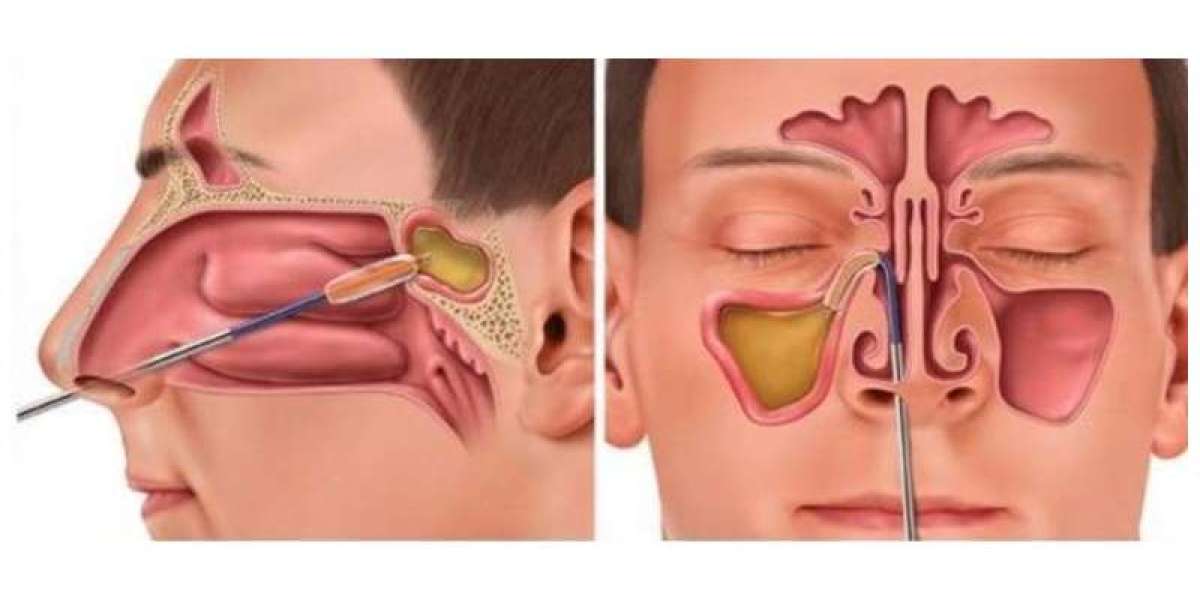Are you struggling with chronic sinusitis that hasn’t responded to medication? Balloon sinuplasty might be the solution you’re looking for. This innovative, minimally invasive procedure has revolutionized the treatment of chronic sinus conditions, offering relief with fewer risks and shorter recovery times than traditional sinus surgery. Let’s explore what balloon sinuplasty is and why it might be right for you.
Understanding Balloon Sinuplasty
Balloon sinuplasty, first approved by the FDA in 2005, is a breakthrough procedure that works similarly to angioplasty for heart arteries. Instead of removing tissue or bone, this gentle procedure uses a small balloon to dilate the sinus passages, restoring normal drainage and providing long-lasting relief from chronic sinusitis symptoms. The procedure maintains the natural structure of your sinuses while effectively treating the underlying problems.
How the Procedure Works
During balloon sinuplasty, your ENT specialist uses specialized instruments designed specifically for this procedure. First, a flexible guidewire with a tiny balloon is carefully inserted into the blocked sinus cavity. Once in position, the balloon is gradually inflated, gently restructuring and widening the sinus passage walls. This process helps restore normal sinus drainage without removing any bone or tissue. The balloon is then deflated and removed, leaving the sinus pathway open.
Ideal Candidates for the Procedure
Not everyone with sinus problems needs balloon sinuplasty. The best candidates typically include:
- People with chronic sinusitis lasting more than 12 weeks
- Those who haven’t responded well to medical therapy
- Patients with recurrent sinus infections
- Individuals looking to avoid traditional sinus surgery
- Those without severe polyps or complicated sinus anatomy
Your ENT specialist will perform a thorough evaluation, including a detailed medical history and possibly a CT scan, to determine if you’re a good candidate for the procedure.
Benefits Over Traditional Surgery
Balloon sinuplasty offers several advantages compared to traditional sinus surgery:
- Minimally invasive with no cutting of nasal bone or tissue
- Faster recovery time
- Less post-operative pain and bleeding
- Lower risk of complications
- Can often be performed in an office setting
- Preserves natural sinus anatomy
- Lower risk of complications
- Quick return to normal activities
Many patients can return to work and regular activities within 24-48 hours, compared to the weeks of recovery often needed after traditional sinus surgery.
The Procedure Experience
Most balloon sinuplasty procedures can be performed in your doctor’s office under local anesthesia. The entire process typically takes about an hour, depending on how many sinuses need treatment. While you may feel some pressure during the procedure, most patients report minimal discomfort.
Before the procedure, your doctor will:
- Review your medical history and symptoms
- Perform a thorough examination
- Explain what to expect during and after the procedure
- Provide specific pre-procedure instructions
Recovery and Aftercare
Recovery from balloon sinuplasty is typically quick and straightforward. Most patients experience some mild fatigue and congestion for a few days following the procedure. Your doctor will provide specific aftercare instructions, which may include:
- Using saline nasal sprays
- Avoiding strenuous activities for a short period
- Taking prescribed medications as directed
- Keeping follow-up appointments
- Using sinus rinses to maintain clear passages
Long-term Results and Success Rates
Clinical studies have shown excellent long-term results with balloon sinuplasty. Many patients report significant improvement in their symptoms, including:
- Better breathing
- Reduced sinus infections
- Decreased headaches
- Improved sleep quality
- Enhanced overall quality of life
Research indicates that about 95% of patients maintain their improved symptoms two years after the procedure.
Insurance Coverage and Cost Considerations
Most insurance plans cover balloon sinuplasty when medically necessary. However, coverage varies by provider and plan. Before proceeding, it’s important to:
- Check with your insurance provider about coverage
- Understand any out-of-pocket costs
- Discuss payment options with your healthcare provider
- Consider the long-term cost benefits compared to ongoing medication
Making the Decision
Deciding whether balloon sinuplasty is right for you requires careful consideration and consultation with an experienced ENT specialist. They can help you understand:
- Your specific sinus condition
- Available treatment options
- Potential risks and benefits
- Expected outcomes
- Recovery process
Remember that while balloon sinuplasty can provide significant relief for many patients, it’s not the right choice for everyone. Some cases may still require traditional surgery or other treatments.
The Future of Sinus Treatment
Balloon sinuplasty represents a significant advancement in sinus treatment technology. As techniques and instruments continue to evolve, we can expect even more improvements in minimally invasive sinus procedures. This ongoing innovation offers hope to the millions of people who suffer from chronic sinusitis.








